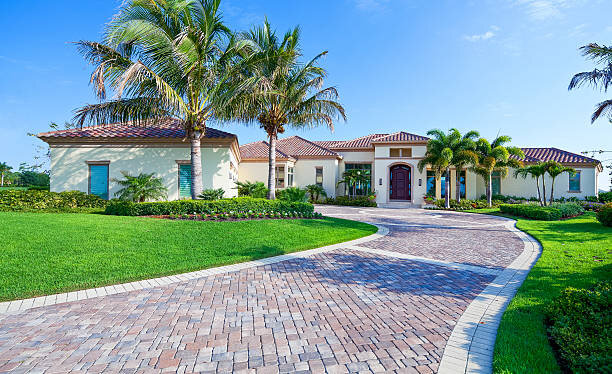
Introduction
House flipping, the art of purchasing properties, renovating them, and then selling them for a profit, is a highly popular real estate investment strategy. Florida, with its diverse real estate market and high demand for homes, presents an enticing opportunity for house flippers. However, before diving into the world of house flipping in the Sunshine State, it’s imperative to comprehend the multifaceted expenses that come with this endeavor. In this extensive article, we will delve deeply into the various costs involved in house flipping in Florida, offering you a comprehensive roadmap to a successful and profitable venture.
1. Acquisition Costs: Laying the Foundation
The initial step in any house flipping project is acquiring the property. In Florida, these costs may encompass:
a) Purchase Price: The first significant expense is the property’s purchase price. Property prices in Florida can fluctuate widely, with coveted locations such as Miami, Fort Lauderdale, and Tampa commanding premium rates.
b) Closing Costs: Closing costs in Florida can include fees for property inspections, title searches, recording fees, and real estate agent commissions. The cumulative effect of these expenses can add up to several thousand dollars.
c) Property Taxes: Florida’s property taxes can be substantial and need to be carefully considered during the acquisition phase.
d) Financing Costs: If you decide to finance your flip with a loan, you must factor in interest payments and loan origination fees.
2. Renovation and Repair Costs: Breathing New Life into Properties
Renovating and repairing the property is the heart of house flipping. The expenses in this category can be extensive and involve:
a) Materials and Labor: The costs associated with materials like lumber, flooring, fixtures, and appliances can be substantial. Additionally, hiring contractors and skilled labor for plumbing, electrical work, and other renovations is a necessity.
b) Permits and Inspections: In Florida, obtaining building permits and scheduling inspections are prerequisites for most major renovations, resulting in additional costs.
c) Design and Architectural Fees: If your renovation plans involve significant structural changes or intricate interior design, design and architectural services may be indispensable.
d) Unexpected Repairs: The renovation process often uncovers unforeseen issues, such as concealed mold or structural damage, necessitating additional, unplanned expenses.
3. Holding Costs: Patience Comes at a Price
House flipping doesn’t happen overnight, and the longer you hold a property, the more expenses you’ll incur. Holding costs include:
a) Property Taxes: As mentioned earlier, Florida’s property taxes can be substantial, and they continue to accrue while the property is in your possession.
b) Insurance: You’ll need property insurance to cover potential damages and liability during the renovation phase.
c) Utilities: While the property is vacant, you may still need to pay for utilities like water, electricity, and gas.
d) Financing Costs: If you’re using a loan to finance the project, interest payments continue to accumulate during the holding period.
4. Marketing and Sales Costs: Selling Your Vision
To successfully sell the property, you’ll need to invest in marketing and sales efforts, including:
a) Realtor Commissions: When it’s time to sell the property, you’ll likely be required to pay a real estate agent’s commission, which typically ranges from 5% to 6% of the sale price.
b) Staging and Photography: Presenting the property in the best light often involves staging and professional photography, both of which come at a cost.
c) Marketing and Advertising: Advertising the property through listings, online platforms, and print media requires a budget for marketing expenses.
5. Miscellaneous Expenses: Covering All Bases
Lastly, there are various miscellaneous expenses that can add up throughout the flipping process, including:
a) Legal Fees: Depending on the complexity of the transaction, legal fees for contracts and agreements may be necessary.
b) Home Inspection Costs: Before selling the property, you may need to invest in a pre-sale home inspection to address any last-minute issues.
c) Home Warranty: Offering a home warranty to potential buyers can be an attractive selling point but comes with a fee.
Conclusion
Flipping houses in Florida can undoubtedly be a lucrative venture, but it’s essential to meticulously plan and budget for all associated expenses. From acquisition costs to renovation, holding, marketing, and miscellaneous expenses, understanding the full financial scope of house flipping is imperative to ensure a successful and profitable outcome. Although there are inherent risks and uncertainties in the real estate market, thorough research and preparation can help mitigate these challenges and maximize your potential for profit in the Sunshine State. Remember that the key to successful house flipping lies in astute financial management and the execution of a well-devised strategy.

